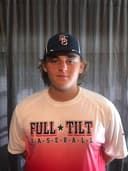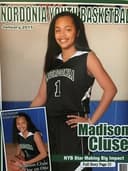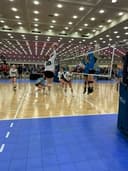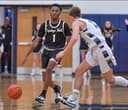
 50 Free (June 1st...
50 Free (June 1st...I started swimming when I was 11. To this day, my biggest regret is not realizing my passion for the sport earlier. When I was 4, I danced. At 6, gymnastics. By the time I was 9, I was playing basketball. However, my whole life I have been in the pool, although not competitively. My grandma has a pool in her backyard and there have been very few days during the summer I haven't been there, swimming laps or just enjoying the feeling of the water on my skin. By the time I was 11, I began to perceive the love I had for being in the water. The pool no longer was just a place where I would challenge my friends to a handstand competition. It became a second home where tears were shed, goals were accomplished, and the future looked bright.
My first day of swim practice was at the YMCA. I remember thinking that I was going to be the worst swimmer there and I would never be as good as the rest of them. If my younger self had been able to see into the future, I think her mindset would have been much more positive. That first season was hard. I had to learn how to adapt to a significantly more difficult practice than I had ever had before. At my first meet, I refused to dive off the starting block. My times were to be expected since I had never swam before, but seeing all the other girls lapping me brought down my confidence. However, it also made me want to push myself to my limits more than ever before. By the end of my third season swimming for the YMCA, my times were nearly as fast as the times of girls who had been swimming there their whole lives. By seeing this, I learned that hard work really did pay off. Many of the girls on the team never showed up to practice. When they were there, they barely pushed themselves, sitting out of the majority of the sets. I knew if I continued to work as hard as I could, I could ultimately achieve my goals.
My freshman year of high school brought more nerves. I again thought that all the high school kids would be way better than me since they were older. This thought was similar to that of the one I had before my first YMCA season, and my reaction was similar. I had to work hard if I wanted to swim with the fastest people. At conditioning, I became known for being there consistently. My coaches began to see my hard work ethic. By the first swim practice, I was put into the second fastest lane. Knowing I was in a lane with mostly juniors and seniors was nerve-wracking and so I swam my heart out to avoid getting lapped. This fear became non-existent though as I was the one lapping them. After three weeks in that lane, I was moved into the fastest lane, a lane of all seniors with the exceptions of a sophomore and me, a freshman. I managed to keep up with them, although being in this lane pushed me harder than ever before, The fear of letting my teammates and coaches down helped me keep going, but above all else, I was afraid of letting myself down. What if all my hard work was for nothing? I couldn't let my swimming career peak in high school. I worked hard every day and became a leader on my team. People respected me because they saw my refusal to give up. I earned the nickname, "Machine Gun Rachael," because I had one of the best kicks on the team. My times continued to come down every meet, making my YMCA times seem awful in comparison.
When my freshman season ended, I began to go back to the YMCA during the off season. I wrote my own sets and watched YouTube videos to improve my technique. I was fully aware that if I spent too many days not swimming, I would lose progress. I refused to see that happen. I felt myself getting better daily. Over the summer, I swam for the YMCA again, although it was a different team than in past years. Again I swam in one of the fastest lanes and kept up, proving to be a leader on the team. The first meet I swam the 50 free. My time had been stuck at 30 for the entirety of my freshman year, but at this meet I swam a 29. My hard work paid off again, so I kept pushing myself along. My times continued to drop. When the season ended, I returned to the YMCA to swim laps alone and work on form. Sophomore year conditioning began soon after, so my workouts became a mixture of dryland and swimming.
Sophomore year I was named captain of the Westland swim team. This encouraged me to step up even more and encourage the new people on our team to be their best. Many of the new swimmers seemed discouraged when they weren't going as fast as those of us who had been swimming for years, some their whole lives. I knew this feeling, and so I encouraged them to keep working hard. They have potential. I gave them tips on technique, how to swim distance, and how to stretch before events. By the end of the season, they were dropping insane amounts of time in all of their events. I was dropping time too. My freshman year times looked extremely slow in comparison. I was the fastest girl on the Westland team, and one of the fastest girls in the combined swim program Westland and Central Crossing shared. My academics were also at an all time high. With a GPA of 4.3, I am number one in my class.
Looking back at all the progress I've made is one of my biggest motivators. I see just how much I have grown in the 6 seasons I have swam. I push myself harder than anyone I know. I am also able to teach myself to improve in many aspects, although I have grown significantly from my coaches. One of my biggest fears in life is failing myself. When I am older, I don't want to look back and regret not working harder. I want my 11 year-old self to be able to be proud that she didn't give up when she wasn't the best. One of my biggest aspirations is swimming in college. I want to swim for a school that pushes me to be the best I can be, athletically, academically, and socially. My high school swim seasons have pushed me to be the best version of myself possible. To continue this into college is my biggest goal.
I know working hard is how you accomplish your goals. I will never quit.







